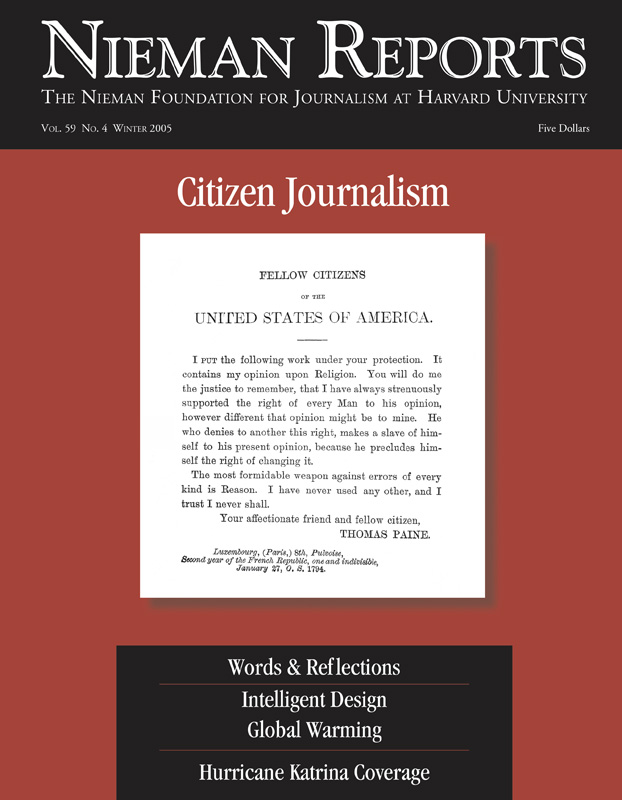Tucked between a verdant coastal mountain range and stark Pacific Ocean bluff tops, Half Moon Bay is one of those rare, spectacular natural places. It’s also a classic small town, time-warped only by the happy accident of relative geographic inaccessibility to the suburbanized San Francisco-Silicon Valley corridor just 20 minutes “over the hill.”
Not everyone here is involved in local politics, but pretty much everyone has an opinion. What it boils down to is development. What’s our civic vision? Do we continue to define ourselves fundamentally as a rural fishing and agricultural community, open to sweeping vistas and closed to shopping mall sprawl? Or do we make Faustian bargains, trading bits of historic identity for real estate deals dressed up in the shroud of progress?
These questions lend themselves to endless political soap-opera gyrations among “pro-growthers,” “no-growthers,” “slow-growthers,” “managed growthers” and … (fill-in-the-blank). Meanwhile, an alienated “silent majority” tunes in to the local cable access channel to watch, and perhaps ruefully to laugh at, the routine Kabuki of another public meeting.
It’s a familiar small-town story, for sure. At its heart is the flow of information driving—or distorting—so much of the civic ecosystem. The weekly newspaper amounts to a water cooler, a town square, the proverbial grapevine. Quite a sacred trust—and it comes with unbelievable, often unchecked, power to influence discourse among citizens.
Not unlike major market media, most small newspapers are driven by bottom-line profit. And that pressure is more obvious in some places than others. In the case of our chain-owned local weekly, ad space is dominated by—what else, in California?—real estate. The pressure to develop subdivisions and golf courses on every last, highly valuable inch of available coastal property is intense. Environmental law is for some a nuisance to be gotten around. This tension is the subtext of everything, from elections to infrastructure to public school education to which watering-hole people choose to frequent. Take a side. Our local newspaper unquestionably has.
The local paper’s version of truth is constantly rebutted for its misrepresentations and insinuations. Starting with city council members who have gone on record with their frustration and refusal even to read the paper, many consider it advocacy rather than journalism. Ask for a correction or clarification and, if one appears, it will likely have a snarky editor’s note appended. In any case, once something falsely damaging is out in circulation, it’s too late.
RELATED ARTICLE
"Things I Wish I’d Known Before I Became a Citizen Journalist"
- Barry ParrThat’s why it was such a breath of fresh air when an online citizen journalist stepped up to offer a different point of view. More than that, Barry Parr has brought integrity, wit and professionalism to Coastsider.com. Though familiar with newsrooms as a result of his work designing early Web sites for Silicon Valley news outlets such as the San Jose Mercury News, Parr had no professional reporting experience. He’s gotten his cub training as a middle-aged, computer-age Thomas Paine—a classic watchdog journalist, with a take-no-prisoners pay scale to match.
To the amusement and relief of devoted readers, Parr has at times posted line-edited-for-accuracy versions of pieces featured in the weekly. He has outed those who would intimidate or suppress opposing points of view. He has created a civilized space for alternative voices—and unsponsored truth.
It might sound overblown, but Coastsider.com provides an unbelievably critical public service. It’s a locus for the kind of civic trust and independence on which the idea of journalism, indeed democracy, is based. And he doesn’t even own a printing press.
Leslie Dreyfous McCarthy, a 1995 Nieman Fellow and former national writer for The Associated Press, has come in for her share of local newspaper coverage as the author of a controversial local ballot initiative and an advocate for environmental responsibility and smart-growth on the California coast.
Not everyone here is involved in local politics, but pretty much everyone has an opinion. What it boils down to is development. What’s our civic vision? Do we continue to define ourselves fundamentally as a rural fishing and agricultural community, open to sweeping vistas and closed to shopping mall sprawl? Or do we make Faustian bargains, trading bits of historic identity for real estate deals dressed up in the shroud of progress?
These questions lend themselves to endless political soap-opera gyrations among “pro-growthers,” “no-growthers,” “slow-growthers,” “managed growthers” and … (fill-in-the-blank). Meanwhile, an alienated “silent majority” tunes in to the local cable access channel to watch, and perhaps ruefully to laugh at, the routine Kabuki of another public meeting.
It’s a familiar small-town story, for sure. At its heart is the flow of information driving—or distorting—so much of the civic ecosystem. The weekly newspaper amounts to a water cooler, a town square, the proverbial grapevine. Quite a sacred trust—and it comes with unbelievable, often unchecked, power to influence discourse among citizens.
Not unlike major market media, most small newspapers are driven by bottom-line profit. And that pressure is more obvious in some places than others. In the case of our chain-owned local weekly, ad space is dominated by—what else, in California?—real estate. The pressure to develop subdivisions and golf courses on every last, highly valuable inch of available coastal property is intense. Environmental law is for some a nuisance to be gotten around. This tension is the subtext of everything, from elections to infrastructure to public school education to which watering-hole people choose to frequent. Take a side. Our local newspaper unquestionably has.
The local paper’s version of truth is constantly rebutted for its misrepresentations and insinuations. Starting with city council members who have gone on record with their frustration and refusal even to read the paper, many consider it advocacy rather than journalism. Ask for a correction or clarification and, if one appears, it will likely have a snarky editor’s note appended. In any case, once something falsely damaging is out in circulation, it’s too late.
RELATED ARTICLE
"Things I Wish I’d Known Before I Became a Citizen Journalist"
- Barry ParrThat’s why it was such a breath of fresh air when an online citizen journalist stepped up to offer a different point of view. More than that, Barry Parr has brought integrity, wit and professionalism to Coastsider.com. Though familiar with newsrooms as a result of his work designing early Web sites for Silicon Valley news outlets such as the San Jose Mercury News, Parr had no professional reporting experience. He’s gotten his cub training as a middle-aged, computer-age Thomas Paine—a classic watchdog journalist, with a take-no-prisoners pay scale to match.
To the amusement and relief of devoted readers, Parr has at times posted line-edited-for-accuracy versions of pieces featured in the weekly. He has outed those who would intimidate or suppress opposing points of view. He has created a civilized space for alternative voices—and unsponsored truth.
It might sound overblown, but Coastsider.com provides an unbelievably critical public service. It’s a locus for the kind of civic trust and independence on which the idea of journalism, indeed democracy, is based. And he doesn’t even own a printing press.
Leslie Dreyfous McCarthy, a 1995 Nieman Fellow and former national writer for The Associated Press, has come in for her share of local newspaper coverage as the author of a controversial local ballot initiative and an advocate for environmental responsibility and smart-growth on the California coast.



